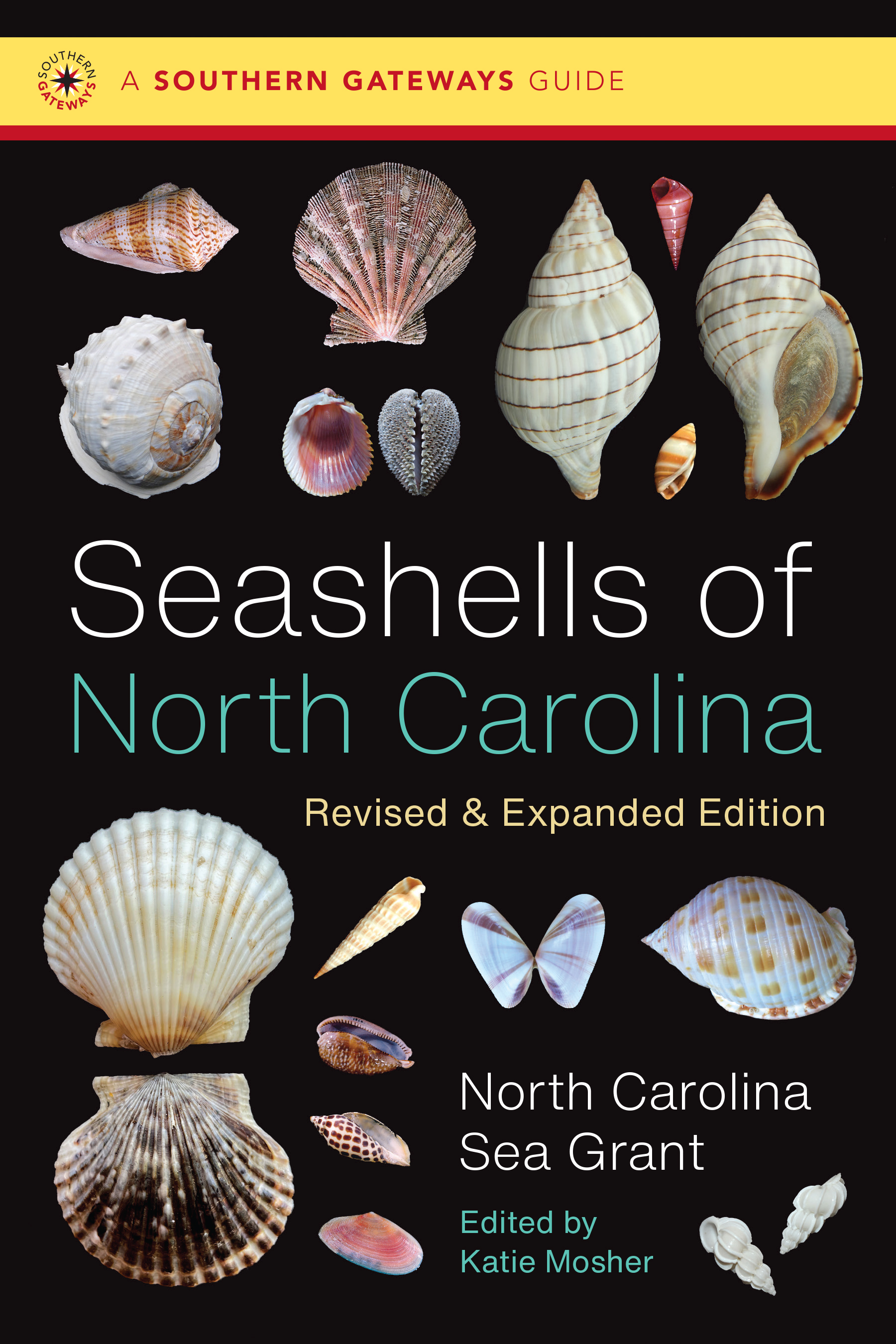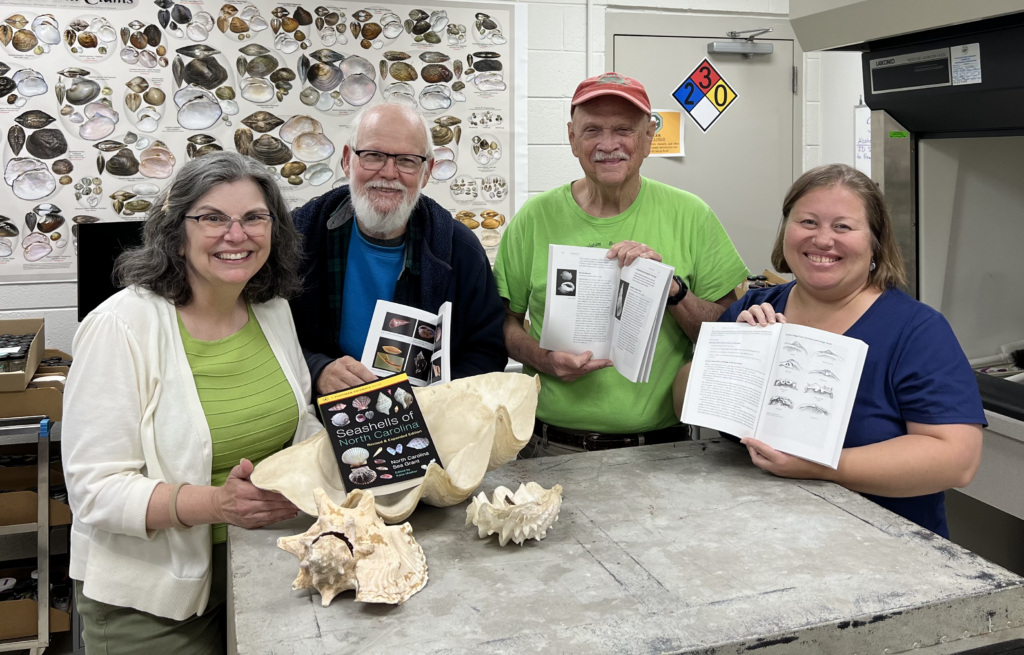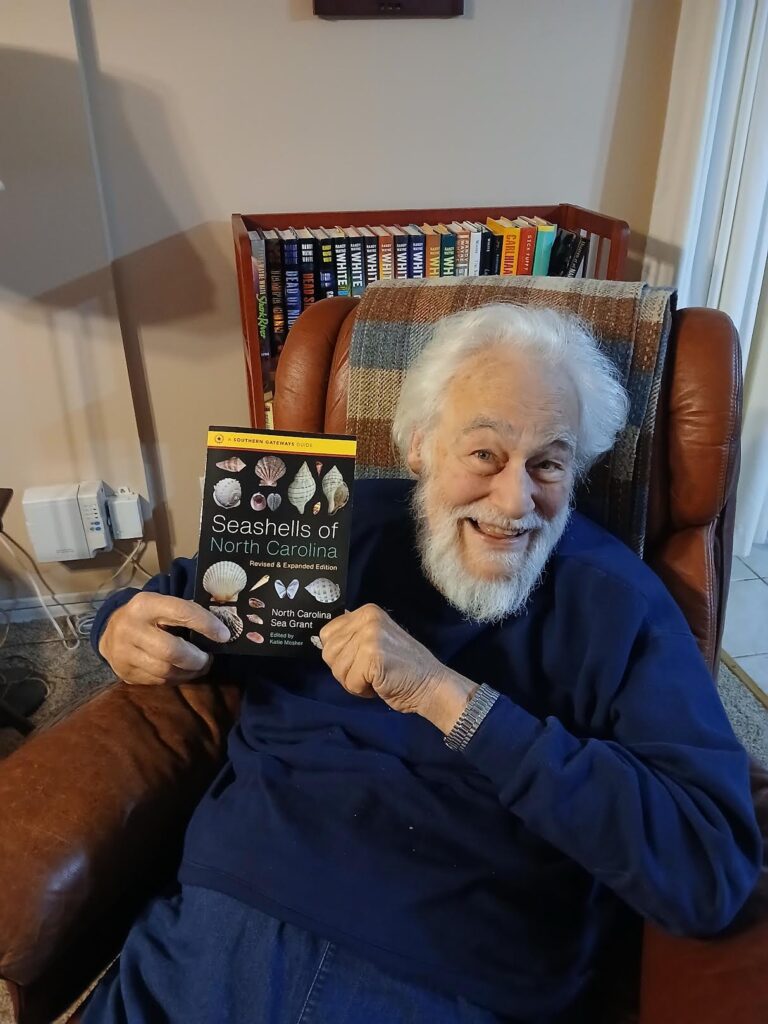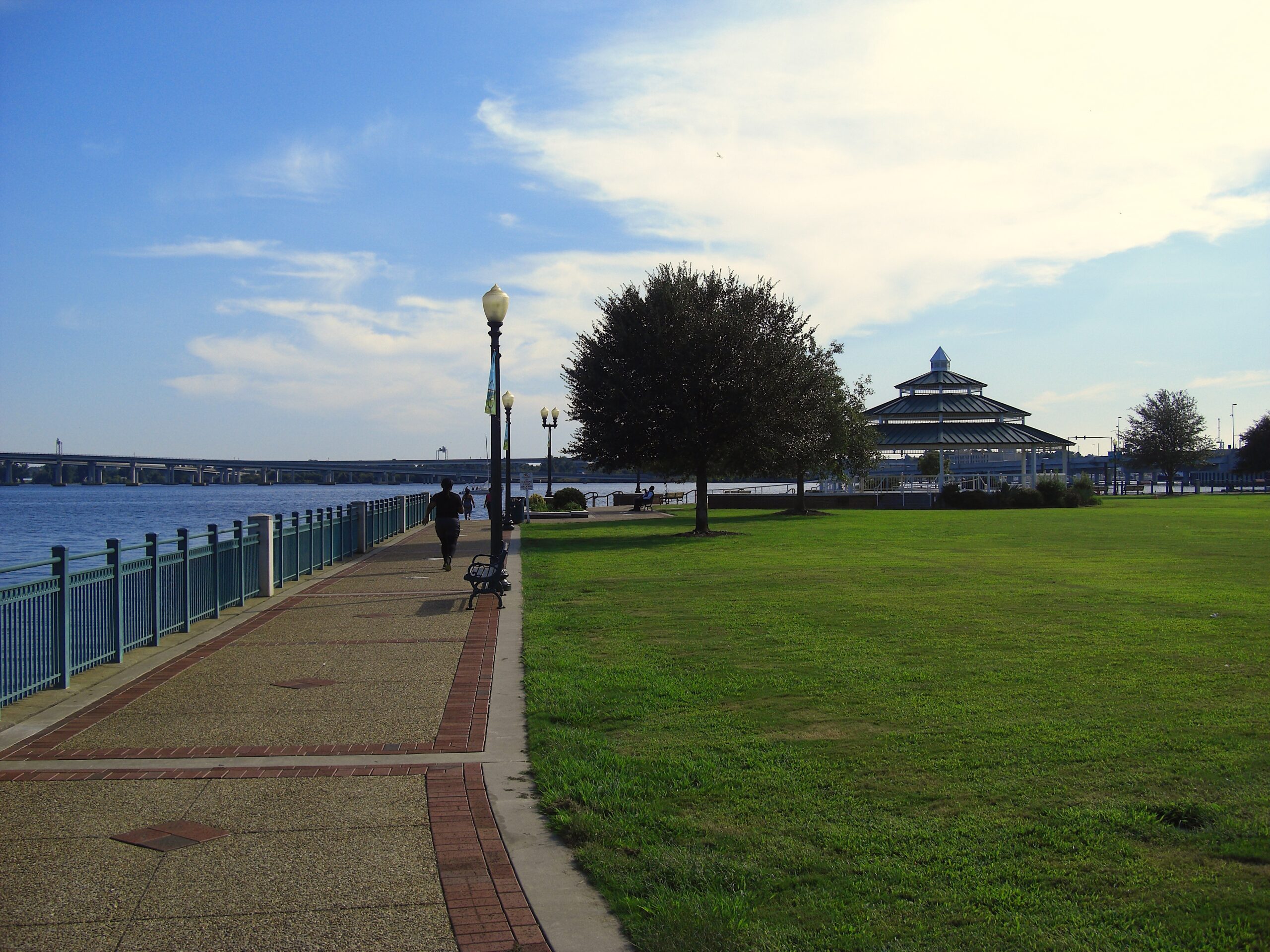“Seashells of North Carolina” Updated and Expanded

Contact: Dr. Erika Young, erika_young@ncsu.edu
Carrie Clower, cclower@ncsu.edu
See below for review copies for media and course adoption.
“The sea provides a natural treasure hunt,” note the editors of a new edition of Seashells of North Carolina. “At any time, a group of shells lying inconspicuously in the sand may contain a rarity, just waiting to catch the shell enthusiast’s eye.”
For decades, beachcombers and malacologists alike have turned to Dr. Hugh Porter’s classic guide to identify and learn about shells sprinkled along the Carolina coastline. The new Seashells is now available in bookstores, the result of a partnership of North Carolina Sea Grant, who published the 1997 edition, along with The University of North Carolina Press, the North Carolina Museum of Natural Sciences, and the North Carolina Shell Club.
“When we needed a reprint, we decided it was time to gather a team of scientists and editors to review the existing text and add updates for scientific names and descriptions, along with two dozen more species,” says Katie Mosher, who earlier this year retired as NC Sea Grant’s communications director, and who managed the update. “UNC Press saw it as a great fit for the Southern Gateways Guides, and the museum and shell club were eager to join us.”
The book is already getting good reviews.
“This comprehensive guide brings scientific information to the public and includes descriptions that are useful even for people who are new to shell identification,” says Liz Baird, president of the North Carolina Aquarium Society. She notes that the book is, “a professional, accurate, and valuable resource for the state.”
The new edition builds upon the research and collection of Porter, who joined the University of North Carolina at Chapel Hill’s Institute of Marine Sciences in the 1950s. He also was widely known as “Mr. Seashell” for his extensive knowledge and passion for mollusks. He and his wife, Dorothy “Pinky” Porter, helped co-found the NC Shell Club, which still honors him through an award to a club member. At the club’s annual shell show in May, the crowd was already excited about the new edition coming in June.
This edition of Seashells contains a new series of illustrations by Georgia Minnich to identify shell shapes as a first step, which then lead the beachcomber to the descriptions and photos for final identification. “The addition of a unique visual shell index will make shell identification easier than before,” says Ed Shuller, one of the club experts on the book team.

Introductory information explains shell biology and geographic distribution. Readers also will find valuable the index of scientific and common names featuring the updated scientific nomenclature.
Dr. Erika Young, the coastal and marine education specialist with NC Sea Grant, worked with Mosher to update Seashells. “I think this edition is concise enough for the casual beachcomber and specific enough for research purposes,” says Young. “My most pivotal learning experience about NC’s shells was Dr. Hugh Porter’s display at IMS as a graduate student. It was an honor to work on this book and continue his legacy for mollusk lovers everywhere!”
The Porter collection is now housed at the N.C. Museum of Natural Sciences, part of the N.C. Department of Natural and Cultural Resources. Curators Dr. Arthur Bogan and Jamie Smith have made regular use of it for 20 years to create educational materials and conduct research on mollusks.
“The Institute of Marine Sciences’s mollusk collection represents about 50 years of collecting marine mollusks of the North Carolina Coast,” says Bogan. It played a large part in updating the book.
Porter passed away in 2014, but his legacy lives on. Dr. Douglas Wolfe, who spent much of his NOAA career at the Beaufort Lab, knew Porter well from the shell club. “It is appropriate to recognize and honor his many contributions,” notes Wolfe, in his biography of Porter for the club’s website, which emphasizes his impact on the field of malacology.

Seashells of North Carolina officially launches for purchase through local bookstores and ebook platforms, with UNC Press taking individual orders as well as requests for bulk orders.
#
Purchase your copy of Seashells of North Carolina from UNC Press: https://uncpress.org/book/9781469678948/seashells-of-north-carolina-revised-and-expanded-edition/
Read Sea Grant’s earlier coverage of Hugh Porter’s legacy: https://ncseagrant.ncsu.edu/currents/2017/07/mr-seashells-legacy-lives-on/
Check out the NC Museum of Natural Science’s digital collection of these mollusks: https://collections.naturalsciences.org/search/mollusks
NOTE: Request for review copies for members of the media and educators considering for course adoption should be sent by email to Helen.Kyriakoudes@uncpress.org


